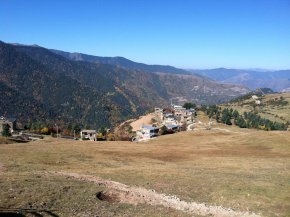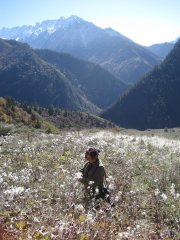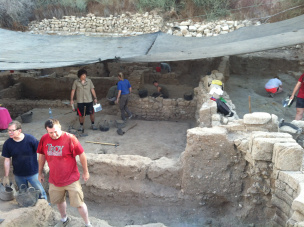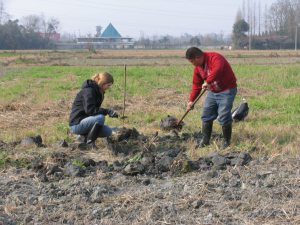Modeling Human-Climate Interactions
I develop models to understand how past and present changes in climatic regimes impacted the resilience of human subsistence regimes. Past research projects based on modeling include using ecological niche modeling to understand the spread of agriculture to Southwest China, the Tibetan Plateau and Eastern China. For data and methods sharing, please contact me.
The Long Term Dynamics of Agricultural Systems in High Altitude Environments
Working with researchers from four different institutions, our multi-disciplinary project that aims to use a combination of dendroclimatology, agricultural modeling, geomorphology, archaeobotany and zoo-archaeology to understand how humans in high altitude environments have developed sustainable subsistence regimes during major episodes of past climate change using data from the Eastern Tibetan Plateau as a case study.
Archaeological Fieldwork Project-Jiuzhaigou National Park
I currently direct an Archaeological Fieldwork Project on the Eastern Tibetan Plateau in the Jiuzhaigou National Park, Sichuan Province with co-PI Anke Hein, the Sichuan Provincial Institute of Archaeology and Sichuan University. We are carrying out a systematic survey of the park as well as excavations at a Early Bronze Age Site, Ashaonao, to understand transitions in subsistence regimes in the area.
Ashkelon Site, Israel
Along with John Mac Marston, Boston University, I co-direct archaeobotanical research at the Ashkelon Site: a major multi-period urban site in coastal Israel.
Past Project: The Spread of Agriculture to the Chengdu Plain
From 2006-2012, I worked as a member of the Chengdu Plain Archaeological Survey along with members of the Chengdu City Institute of Archaeology, Harvard University, Taiwan University and Peking University. My work during this project aimed to establish the timing and the nature of the spread of agriculture to the Chengdu Plain. To do so I carried out small scale excavations and participated in work at the Baodun site (2700-1700 cal. BC). My results found that the easy access to water and warm temperatures that contrast the Chengdu Plain from the rest of Southwest China were critical in allowing a system of sustainable rice agriculture to develop in this region, one that later contributed to the development of complex societies such as Sanxingdui.





You must be logged in to post a comment.